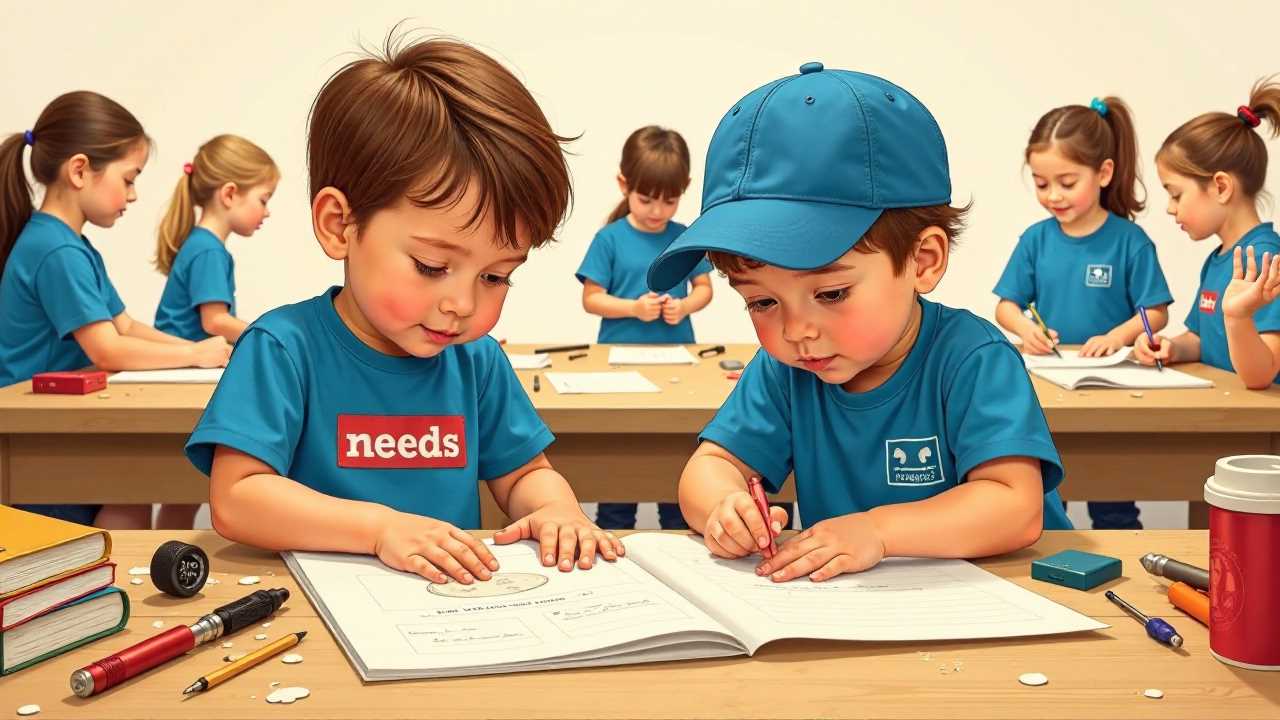
Crafts for special needs children provide an invaluable opportunity for creative expression and skill development. By utilizing adaptive materials and sensory activities, caregivers and educators can create an inclusive environment that fosters engagement and learning. This article explores various crafts that not only entertain but also enhance fine motor skills and promote therapeutic play.
The Importance of Adaptive Materials
Adaptive materials are essential in crafting for special needs children, as they cater to diverse abilities and preferences. These materials can include textured papers, large-handled tools, and non-toxic, easy-to-handle supplies. By selecting appropriate adaptive materials, caregivers can ensure that every child can participate fully in the crafting process, fostering a sense of accomplishment and confidence.
Engaging Sensory Activities
Sensory activities play a crucial role in the development of special needs children. Crafts that involve different textures, colors, and sounds can stimulate the senses and enhance cognitive development. For example, creating sensory bins filled with various materials allows children to explore and interact with their environment, promoting both creativity and fine motor skills. Incorporating sensory elements into crafts not only makes the experience enjoyable but also therapeutic.
Enhancing Fine Motor Skills
Crafts are an excellent way to improve fine motor skills in special needs children. Activities such as cutting, gluing, and threading beads require precision and coordination. Simple crafts like making friendship bracelets or collages can be tailored to suit individual abilities, allowing children to practice these essential skills in a fun and engaging way. As they master these tasks, their confidence and independence grow.
Inclusive Crafts for All
Creating inclusive crafts means designing activities that everyone can enjoy, regardless of their abilities. This can involve modifying traditional crafts to accommodate different skill levels or providing alternative methods for participation. For instance, using adaptive scissors or offering pre-cut shapes can help children who may struggle with fine motor tasks. By promoting inclusivity, we ensure that every child feels valued and included in the creative process.
The Role of Therapeutic Play
Therapeutic play is a vital aspect of crafting for special needs children. Engaging in creative activities can help reduce anxiety, improve focus, and promote emotional well-being. Crafts can serve as a form of self-expression, allowing children to communicate their feelings and experiences in a safe environment. By incorporating therapeutic play into crafting sessions, caregivers can support emotional growth and resilience.
Fostering Creative Expression
Encouraging creative expression is at the heart of crafting for special needs children. Providing opportunities for children to explore their imagination and create unique projects fosters self-esteem and individuality. Whether it's painting, sculpting, or collage-making, the process of creating allows children to express themselves freely. Celebrating their creations, regardless of the outcome, reinforces the value of their efforts and encourages continued exploration of their artistic abilities.
In conclusion, crafts for special needs children offer a multitude of benefits, from enhancing fine motor skills to promoting therapeutic play and creative expression. By utilizing adaptive materials and engaging sensory activities, caregivers can create an inclusive and empowering environment that nurtures creativity and personal growth. Embracing these practices not only enriches the crafting experience but also supports the overall development of special needs children.
 Family Craft ProjectsHome ImprovementCooking and BakingReuse and RecycleDIY GiftsEco-Friendly ProjectsDIY Home SolutionsSeasonal ActivitiesFun and GamesLearn TogetherPrivacy PolicyTerms And Conditions
Family Craft ProjectsHome ImprovementCooking and BakingReuse and RecycleDIY GiftsEco-Friendly ProjectsDIY Home SolutionsSeasonal ActivitiesFun and GamesLearn TogetherPrivacy PolicyTerms And Conditions
